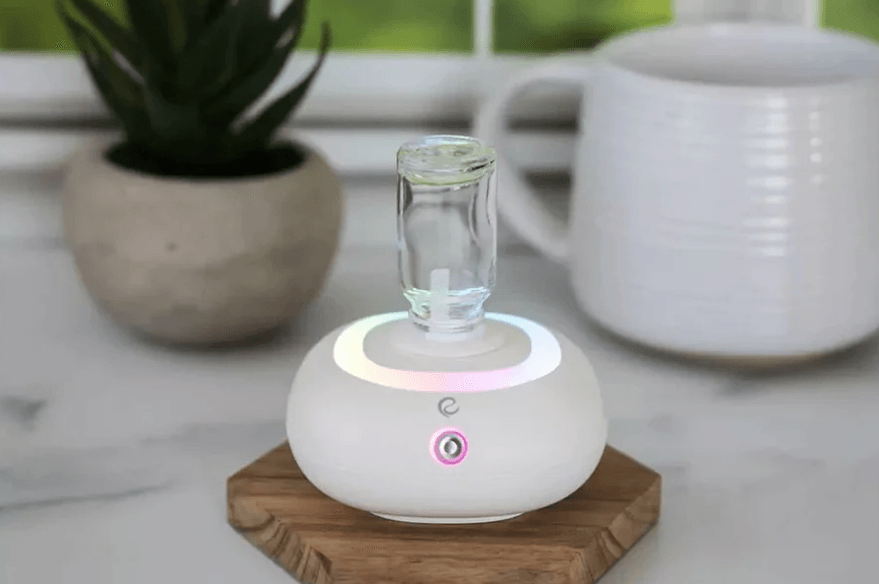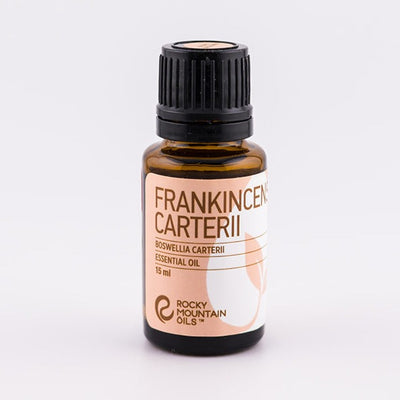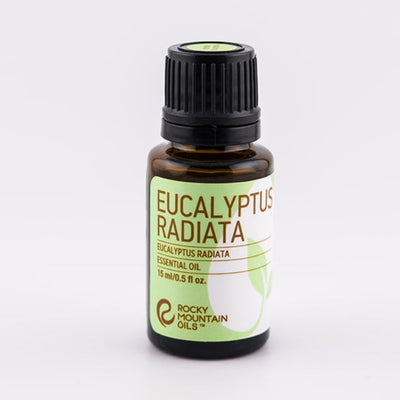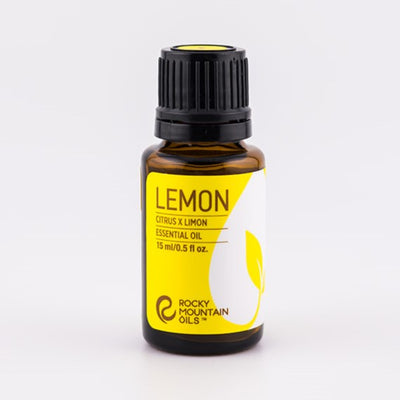How Do Essential Oil Diffusers Work: Unveiling the Magic of Aromatherapy
Introduction to Essential Oil Diffusers
In the serene world of aromatherapy, essential oil diffusers have emerged as a cornerstone, enchanting spaces with their soothing fragrances. But what lies behind this allure? In this comprehensive guide, we delve into the mechanics and marvels of essential oil diffusers, illuminating their role in our pursuit of wellness and tranquility.

Understanding Essential Oils
At the heart of any diffuser is its lifeblood - essential oils. Extracted from nature's bounty, these oils are more than mere scents; they are the essence of plants, encapsulating their healing and rejuvenating properties.
The Science Behind Essential Oil Diffusion
The science behind essential oil diffusion is a captivating blend of nature and technology. When concentrated essential oils are introduced into a diffuser, they undergo a transformative process. In ultrasonic diffusers, for instance, ultrasonic vibrations break the oils into fine micro-particles, creating a mist that is then dispersed into the air. This mist carries the therapeutic properties of the oils, allowing them to be inhaled and absorbed by the body.
Nebulizing diffusers work differently, using pressurized air to atomize the oils without heat, preserving their therapeutic qualities. Heat diffusers gently warm the oils, releasing their aroma, but can slightly alter their chemical structure. Each method has its unique way of ensuring that the potent, volatile compounds in the oils are efficiently and effectively released into the environment, contributing to an enhanced atmosphere and well-being. This intricate interplay of physics and chemistry unlocks the full potential of essential oils, making them accessible for relaxation, mood enhancement, and health benefits.
Types of Essential Oil Diffusers
In the realm of aromatherapy, the diversity of essential oil diffusers presents a variety of options, each tailored to suit different preferences and needs.
- Ultrasonic diffusers, one of the most popular choices, use electronic frequencies to create vibrations that turn water and oil into a fine mist, efficiently dispersing the aroma without heat.
- Nebulizing diffusers, on the other hand, offer a heatless operation, preserving the integrity of the oils. They work by using pressurized air to atomize pure essential oils into a fine spray, delivering a more concentrated scent.
- Heat diffusers, a simpler form, gently warm the oils, releasing their fragrance into the air, suitable for smaller spaces. Evaporative diffusers, using a fan to blow air through a filter or pad soaked with oils, offer a subtle dispersion, ideal for personal use.
Each type of diffuser has its unique mechanism, from ultrasonic vibrations and pressurized air to gentle heat and evaporative techniques, ensuring that there's a perfect match for every aromatherapy enthusiast's needs and preferences.

Selecting the Right Essential Oils
Selecting the right essential oils involves understanding their unique properties and benefits to tailor your aromatherapy experience:
- Lavender: Renowned for its calming and soothing properties, ideal for stress relief and promoting better sleep.
- Peppermint: Offers a refreshing and invigorating aroma, great for enhancing concentration and alleviating headaches.
- Eucalyptus: Known for its respiratory benefits, it helps in clearing nasal passages and providing relief from colds.
- Lemon: With its uplifting and purifying qualities, it's perfect for boosting mood and cleansing the air.
- Tea Tree: Valued for its antimicrobial properties, it's a go-to for improving air quality and supporting immune health.
- Chamomile: Recognized for its relaxing and anti-inflammatory effects, it's excellent for creating a serene atmosphere.
- Rosemary: Stimulates mental activity and is believed to boost memory, making it ideal for a workspace.
- Frankincense: Offers grounding and calming effects, often used for meditation and reducing anxiety.
- Ylang-Ylang: Known for its mood-enhancing and sedative properties, it’s great for stress relief and promoting a positive environment.
- Sandalwood: Its rich, woody scent is perfect for grounding and deep relaxation, often used in meditation.
Understanding these individual properties allows you to blend oils effectively, creating a personalized haven that caters to your specific needs, whether it's for relaxation, revitalization, or health benefits.
Maintenance and Care of Diffusers
To ensure your diffuser continues to work effectively, regular maintenance is key. Learn how to clean and care for your diffuser, along with troubleshooting common issues, to keep it running optimally for years to come.
Maintaining and caring for your essential oil diffuser is crucial for its longevity and effectiveness.
Here are key steps to follow:
- Regular Cleaning: After every few uses, clean your diffuser to prevent oil buildup. Empty any remaining water and wipe the inside with a clean, damp cloth.
- Deep Cleaning: Once a month, fill the diffuser with a mixture of water and a few drops of white vinegar. Run it for 5-10 minutes, then empty and wipe down thoroughly.
- Check for Residue: Regularly check for oil residue or water marks, especially in areas where water vapor exits the diffuser.
- Replace Water Regularly: Always use fresh water each time you use the diffuser, and avoid letting water sit in the diffuser for extended periods when not in use.
- Avoid Hard Water: If possible, use distilled or purified water to prevent mineral buildup from tap water.
- Proper Storage: When not in use, store the diffuser in a dry, cool place away from direct sunlight.
- Check Electrical Parts: Inspect cords and plugs periodically for any signs of wear or damage.
- Troubleshoot Issues: If the diffuser is not working properly, check for common issues like clogged mist outlets or incorrect water levels.
- Follow Manufacturer's Instructions: Always adhere to the cleaning and maintenance instructions provided by the manufacturer for the best care specific to your diffuser model.
Safety Tips for Using Essential Oil Diffusers
While diffusers are generally safe, it's important to use them correctly. We'll cover essential safety tips, especially when using diffusers around children and pets, to ensure a safe and enjoyable aromatherapy experience for everyone.
Here are some essential tips to keep in mind:
- Keep Out of Reach: Place diffusers in an area that is inaccessible to children and pets to prevent accidental spills or ingestion.
- Use Appropriate Oils: Some essential oils can be harmful to pets or children. Research and use oils that are safe for the entire household.
- Avoid Direct Contact: Ensure that the mist from the diffuser does not directly contact skin or eyes, as some oils can be irritating.
- Proper Ventilation: Use diffusers in well-ventilated areas to avoid overwhelming scents and facilitate proper air circulation.
- Monitor Duration: Limit diffusion to 30-60 minute intervals with breaks in between to prevent overexposure to the oils.
- Water and Oil Levels: Always follow the manufacturer's guidelines for water and oil quantities to avoid overuse or damage to the diffuser.
- Electrical Safety: Keep the diffuser away from water sources and ensure the electrical cord is not a tripping hazard.
- Observe for Reactions: Pay attention to any adverse reactions in household members or pets and discontinue use if necessary.
- Regular Cleaning: Keep the diffuser clean to prevent mold growth and ensure efficient operation.
- Consult Healthcare Providers: If you have specific health concerns or conditions, consult with a healthcare provider before using essential oils.

The Impact of Essential Oils on Mood and Health
The impact of essential oils on mood and health is significant, with various scents offering distinct benefits:
- Stress Reduction: Lavender and chamomile oils are known for their calming effects, helping to reduce stress and anxiety.
- Mood Enhancement: Citrus oils like lemon and orange can uplift the mood and create a sense of positivity.
- Improved Sleep Quality: Oils such as lavender and sandalwood promote relaxation and can improve the quality of sleep.
- Enhanced Concentration: Rosemary and peppermint oils are believed to stimulate mental clarity and improve focus.
- Immune System Support: Oils like tea tree and eucalyptus have antimicrobial properties, potentially boosting the immune system.
- Emotional Balance: Ylang-ylang and frankincense are known for their grounding properties, helping to balance emotions.
- Skin Health: Tea tree and lavender oils have antiseptic properties, beneficial for skin health and acne treatment.
Scientific studies support these benefits and more, highlighting the potential of essential oils in enhancing both psychological and physical well-being when used in aromatherapy.
Eco-Friendly and Sustainable Practices in Aromatherapy
Embrace sustainability in your aromatherapy practice by choosing eco-friendly diffusers and organic oils. Adopting eco-friendly and sustainable practices in aromatherapy involves mindful choices:
- Choose Organic Oils: Opt for essential oils that are organic and sustainably sourced, ensuring minimal environmental impact.
- Eco-Friendly Diffusers: Select diffusers made from sustainable materials and designed for energy efficiency.
- Recyclable Packaging: Look for oils and diffusers with recyclable or biodegradable packaging.
- Responsible Disposal: Properly dispose of diffuser parts and containers to minimize waste.
- Support Ethical Brands: Choose brands committed to ethical sourcing and environmental responsibility.
- Mindful Usage: Use oils judiciously to avoid wastage, considering the environmental cost of production.
- Educate Yourself: Stay informed about the ecological footprint of aromatherapy products and practices.

Are essential oil diffusers effective?
The effectiveness of essential oil diffusers depends on individual preferences and needs. Some people find them effective for creating a pleasant ambiance and enhancing relaxation. Essential oils diffused into the air can also have potential therapeutic benefits, such as improving mood or supporting respiratory health. However, their effectiveness may vary from person to person, and it's essential to choose high-quality oils and use the diffuser properly for the best results.
How does a diffuser make mist?
A diffuser creates mist by breaking down water and essential oils into tiny droplets. It uses ultrasonic vibrations or a fan to disperse the mist into the air. The essential oils are mixed with water in the diffuser's reservoir, and then the diffuser's mechanism agitates the mixture, turning it into a fine mist. This mist is then released into the surrounding environment, providing a pleasant aroma and potentially offering therapeutic benefits through aromatherapy.
What are the disadvantages of oil diffusers?
Oil diffusers have several disadvantages. First, they can be a fire hazard if not used properly, as the diffuser heats up to disperse the essential oils into the air. Second, some people may experience allergic reactions or respiratory issues when exposed to certain essential oils, especially in poorly ventilated areas. Third, continuous use of oil diffusers can lead to a buildup of oil residue on surfaces, which may be challenging to clean. Lastly, essential oils used in diffusers can be expensive, making them a less cost-effective option for fragrance compared to other methods.
FAQs About Essential Oil Diffusers
Get answers to common questions about essential oil diffusers. This section provides expert answers to help you make informed decisions and optimize your diffusing experience.
Can essential oil diffusers be used in any room?
Essential oil diffusers can be used in most rooms, including living rooms, bedrooms, and offices. However, it's important to consider room size, ventilation, and the presence of pets or small children, as some essential oils may not be suitable for every environment.
How often should I clean my essential oil diffuser?
It's recommended to clean your diffuser after every few uses to prevent oil buildup and ensure optimal performance. A deep clean with a mixture of water and white vinegar is advisable once a month to maintain its efficiency and longevity.
Can I leave my diffuser on overnight?
While some diffusers are designed to be left on overnight, especially those with automatic shut-off features, it's generally safer to use them for shorter periods, such as 30-60 minutes before bedtime. Continuous long-term use can lead to overexposure to the oils, and it's always best to follow the manufacturer's guidelines.
Conclusion: The Future of Aromatherapy and Diffusers
As we look toward the future, the role of aromatherapy and essential oil diffusers in enhancing our daily lives is more promising than ever. With ongoing innovations in diffuser technology and a growing awareness of holistic well-being, the journey of aromatherapy is set to become even more integral to our quest for a serene, healthful, and aromatic lifestyle. Embracing these natural wonders, we can anticipate a future where the essence of nature's healing powers is seamlessly woven into the fabric of our everyday existence.




